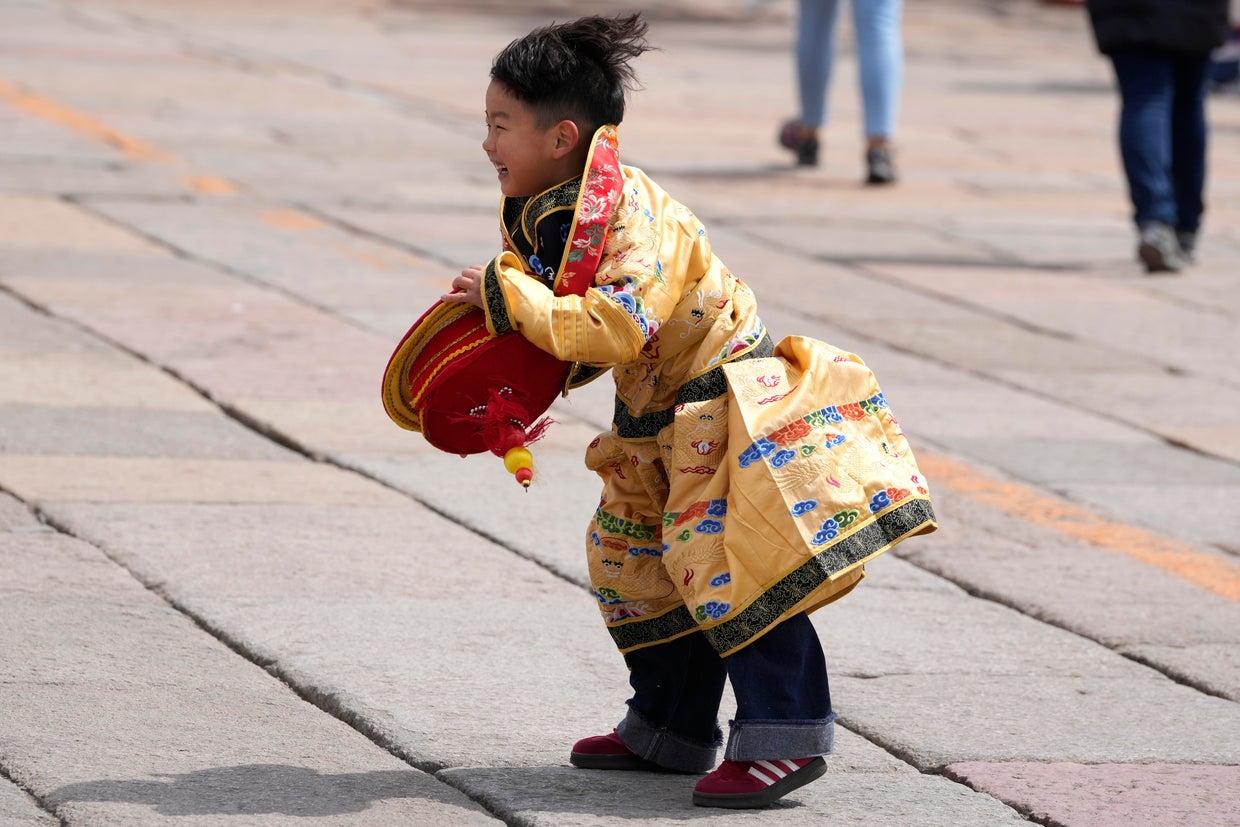
High winds and the threat of sandstorms Saturday prompted Beijing to cancel hundreds of flights and close public parks, as massive gales felled hundreds of trees, crushing cars and damaging older homes across China’s capital.
Beijing’s two massive international airports, Beijing Capital and Daxing, canceled 693 flights by 2 p.m. local time, with warnings of more violent weather on its way, especially in the country’s north and along coastal areas.
More flights and trains were canceled in other parts of China. Some parts of the country recorded their most powerful winds in more than 75 years, registering at up to 148 kph (92 mph).
Ng Han Guan / AP
In Beijing, the Universal Studios theme park was closed at least through Sunday and historic sites such as Beijing’s Forbidden City, Summer Palace and Temple of Heaven were closed. Football matches and other outdoor events have also been suspended.
High winds and sandstorms are generated in China’s dry north, where the Gobi and Taklamakan Deserts sit surrounded by grasslands and, mountains and forests. China has fought a decades-long battle to lessen the impact of sandstorms, especially in Beijing, which sits on the edge of an arid region and where such storms can reduce visibility to practically zero, send sand into buildings and clothing, and cause severe discomfort to the eyes, nose and ears.
In 2021, a sandstorm — considered the biggest in a decade to slam Beijing — turned the skies yellow. The city government ordered schools to cancel outside sport and events, and advised the public to stay inside where possible, as hundreds of flights were cancelled.
Weather agencies in China blamed the poor air quality on a sandstorm sweeping across northern China from northern Mongolia, where authorities there said it had left several dead, before being carried south by winds and reducing visibility in Beijing to less than 500 meters.


